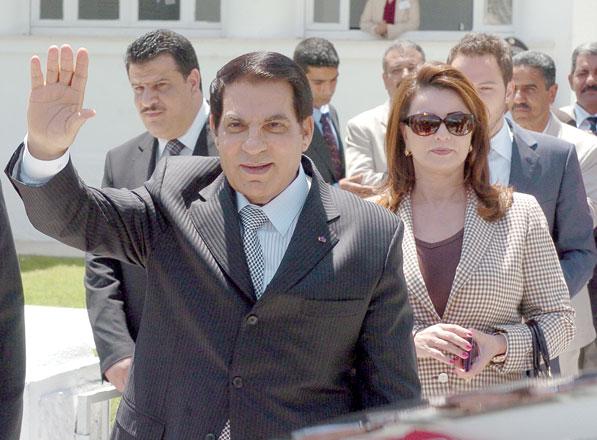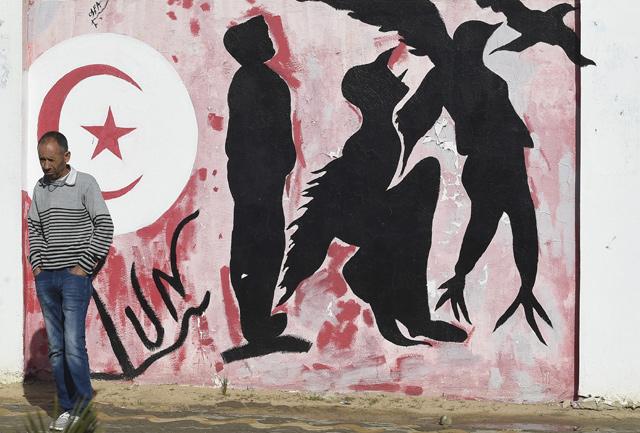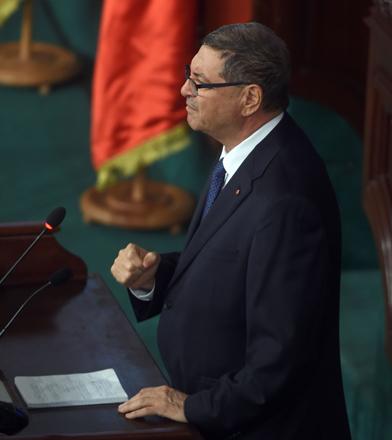You are here
Tunisia's ex-president Ben Ali dies in exile
By AFP - Sep 19,2019 - Last updated at Sep 19,2019

In this file photo taken on May 09, 2010, former Tunisian president Zine Al Abidine Ben Ali waves to wellwishers after voting for the municipal elections next to his wife Leila (AFP photo)
TUNIS — Former Tunisian president Zine Al Abidine Ben Ali, the first leader to be toppled by the Arab Spring revolts, died on Thursday in Saudi Arabia, Tunisia's foreign ministry told AFP. He was 83.
"We had confirmation of his death 30 minutes ago," the ministry said, without giving further details.
His lawyer, Mounir Ben Salha, confirmed the news, citing family members and Ben Ali's doctor.
Ben Ali, who ruled his north African country from 1987 until 2011, was viewed by some as a bulwark against Islamist extremism, but faced criticism for muzzling the opposition and his reluctance to embrace democracy.
Eventually, growing frustration over unemployment and high prices snapped.
In late 2010, the self-immolation of a young trader sparked major protests that rocked the country and sparked a deadly clampdown.
Ben Ali fled Tunisia for Saudi Arabia on January 14, 2011.
His rapid departure sparked a string of similar uprisings across the region, toppling Egyptian and Libyan strongmen Hosni Mubarak and Muammar Qadhafi.
The turmoil triggered what was to become Syria's devastating eight-year war.
In mid-2012, Ben Ali was sentenced in absentia to life in jail for his role in the deaths of protesters during the uprising that ousted him.
Little information has emerged on his life in exile.
Photos posted on Instagram in 2013 showed the former strongman smiling in striped pyjamas.
Rumours of his death had circulated several times in recent years.
A week ago, Ben Salha said the former president was in a "critical condition", before denying reports that he had died.
"He is not dead, but his state of health is bad. He has left hospital and is currently being cared for at his home — his condition is stabilising", the lawyer said at the time.
Prime Minister Youssef Chahed said last week that on humanitarian grounds Ben Ali could return to die in his own country — “like every Tunisian” — should he wish to do so.
Ben Ali is survived by six children; three daughters by a first marriage and two daughters and a son by Leila Trabelsi.
A career soldier, Ben Ali took power on November 7, 1987 when he toppled Habib Bourguiba, the ailing father of Tunisian independence who was by then reported to be senile.
Tunisians, including Islamists, hailed his bloodless, non-violent takeover.
He went on to make Tunisia a moderate voice in the Arab world while Western governments viewed him as an effective bulwark against extremism despite criticism of his slow move toward democracy.
Ben Ali was also sentenced in absentia to misappropriating public funds and ordering the torture of army officers who allegedly led a coup attempt against him.
Tunisia on Sunday held a presidential election, in which two outsiders — law professor Kais Saied and detained media mogul Nabil Karoui — made it through to a second round run-off.
The country’s first post Arab Spring democratically elected president, Beji Caid Essebsi, died in July aged 92, bringing the first round of the presidential polls forward by several months.
Related Articles
TUNIS — Ten years since an uprising toppled Tunisian president Zine Al Abidine Ben Ali, his in-laws, who ran a mafia-like empire that once p
TUNIS — Tunisian Prime Minister Habib Essid defended his government on Wednesday before parliament, faced with unemployment and poverty at t
Blaring music and flags fill the hall where Tunisia's Initiative Party is warming up to test its chances in the second free election since the 2011 "Arab Spring" uprising that ousted autocrat Zine Al Abidine Ben Ali.













